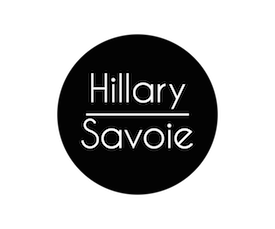Obviously I am pretty open on this blog about life with Esmé. If you read regularly I think it is pretty fair to say that you have a good idea of what I am like in real life…except here I can edit myself better (yeah, yeah, I know what you are thinking). On some level, since I can no longer have a physical classroom, I suppose this blog and the work I do with The Cute Syndrome has risen up to fill my need to teach. While certainly I try to demonstrate to readers the details of our specific life here with Esmé, I hope that I also touch on lessons that are more broad-reaching than our particular lives…lessons about inclusion, about gratitude, about resilence, about anger, about action…and about love.
And while I think that those broader lessons are certainly important, I wonder sometimes if my need to explain the sort of singular “teachable” moments–those moments that are remarkable by virtue of their intensity (for good or for bad)–might obscure the more banal truths of our life. Yes, of course, Esmé is extraordinary in a number of ways (although, as her mother, I may not be the best judge of that). And she makes developmental leaps that no one could have predicted. She is doing far better than we would have anticipated two years ago.
But I really want to be clear about something: My daughter is doing better, but–and this is important–she will not, barring a major medical advancement or a miracle, get better.
Being medically-complex, developmentally delayed, and epileptic is part of who Esmé is. She will need to be treated for epilepsy, fed by a feeding tube, and followed by a bunch of doctors and therapists for the forseeable future. She does not have something that is “repairable” or something that can go away. And while aspects of her condition can be treated and, hopefully, controlled in some way (like insulin controls diabetes), she has at least one (but possibly more) genetic condition that fundamentally alters her neurological, social, emotional, cognitive, and developmental abilities.
This is our reality.
This does not mean that she isn’t clever, funny, adorable, and perfect as well. Because she is…and these has been the aspects of her life that we’ve most celebrated here, especially recently.
Now, readers, you know I am not counting out the possibilty of a miracle, we are constantly working on ways to best position her for success, and we are doing everything we can in our own tiny way to help science address her needs…however, we have also made peace with the reality that Esmé will likely always have serious medical needs in one form or another.
But I am not sure that this reality is always clear to those around us–especially, perhaps, in light of our need to express our hope for her future and our pride in her gains.
Over these last years I have noticed an almost compulsive need in others to try to wrap Esmé’s situation up with a little bow…a need to know that she will get better…sometimes, even, that she is already “better.” And I often find myself in the position of bursting someone’s bubble and having to console them about Esmé’s prognosis…or just smiling and nodding while I’m told about some massage technique or magic potion or diet change or nail polish that saved some other kid.
I know folks are trying to be helpful, trying to give us (and themselves) more hope, to offer something new to try.
And I also know this comes from the place that finds the notion that children can be chronically-ill almost impossible to bear…people want to believe that there is a remission, or a final surgery, or a medication that will resolve all of this vibrant child’s problems, that soon we won’t need to worry about infections or another hospital stay or a future with a child who cannot live independently…that we might be able to say “Oh boy that was tough, but she’s all better now!”
I understand that feeling. I really do. For years I hoped that we might find the magical thing. I thought if I just searched long and hard enough, we’d find something to fix everything. I still wake up from dreams thinking that we took Esmé to some healer, gave some med, or said some magic words and now I’m just a regular mom dropping her off at school, taking her to dance class, watching her make friends and brush her doll’s hair.
Every ounce of my being is oriented toward hope…hope for what, I am still not totally sure…but hope, nonetheless.
We don’t need help with the hope. We’ve got that covered.
What we need is help with the reality.
I need help with the guilt that comes when the miracles I’ve spent years looking for don’t pan out. I need help with the exhaustion of seeking, trying, testing…and never, I mean NEVER, feeling like I have tried enough, done enough.
Because Esmé is doing better. Thankfully she really and truly is doing better. She is constantly doing things that amaze us, her therapists, and her doctors. But this journey has been and will continue to be a long one…and we don’t need to pretend it won’t be.


Thank you for posting this glimpse of what life is really like with a chronically ill child. If I were to substitute the name "Emily" for "Esme", it could have been written for and about our family. <3